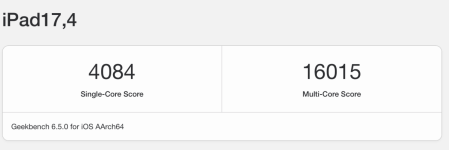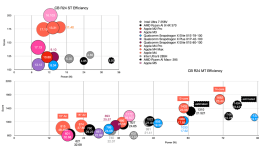One potentially interesting wrinkle is that Apple codenames seem to have a gap for M6, no Pros or Max.
Updated codenames - 10/05/2025 On https://theapplewiki.com/wiki/User:Ilikeiphone123/Playground/Codenames there are a lot of new information. What is the most notable to me is that Apple seems to plan to release Pro/Max/Ultra chips at a slower pace than the regular M chips. Maybe Apple will...

forums.macrumors.com
Not sure how reliable this information is? But let's go on a limb and say it's accurate (and not missing anything), it could be that Pro and Max chips are being pushed back this generation and there will be a gap next generation, but maybe a quicker update with the M7? So let's say Mar 2026 and then October 2027? Rather than releasing October 2025 and October 2027?
I have to admit I'm not sure I believe this - the rumor mill is that Apple will massively updating the M6 MBPs, but if there are literally no Pro and Max chips then no 16" MBP at all, no Pro minis, and no Studios, so the only upgraded MBPs is the 14" with the base M6 chip. Hmmmm ... possible of course, but seems unlikely.





